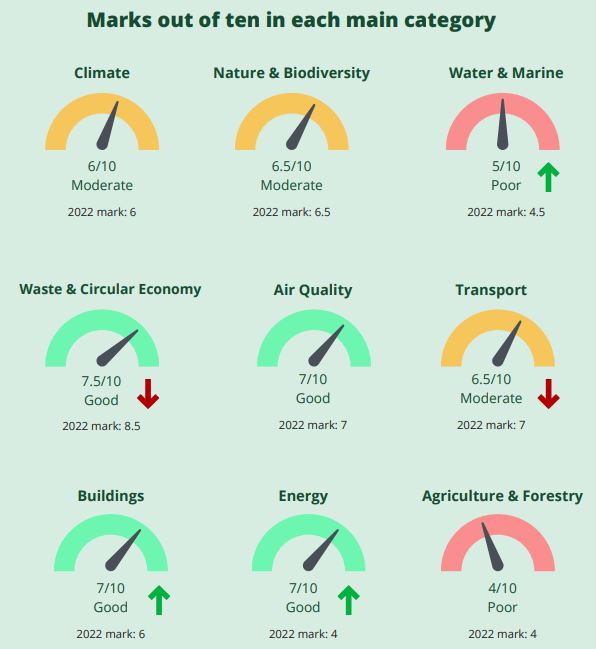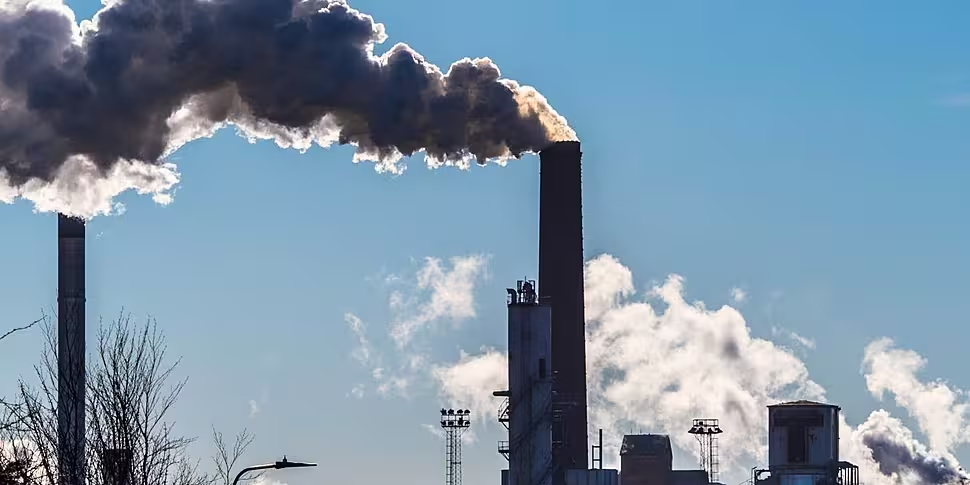The Government won't hit its greenhouse gas target despite 'throwing money at the problem' in recent years, according to a UCC energy expert.
UCC Research Fellow Dr Paul Deane was on the assessors of a new report card on the Government's delivery of its own climate and environmental commitments.
The study, commissioned by Friends of the Earth, gives the coalition a C+ grade for 'moderate progress'.
This is a slight improvement from last year's C grade, with significant progress made on energy commitments, but overall performance on environmental issues is still a long way off where it needs to be, the report finds.
 Source: Friends of the Earth
Source: Friends of the EarthWith only a third of the Government’s term remaining, the experts said some key commitments in the Programme for Government are now in danger of not being achieved.
These 'critically endangered' commitments include sectoral emissions ceilings.
Dr Deane told Newstalk Breakfast the targets are very ambitious.
"The Government have set a target to reduce the pollution coming from greenhouse gas by about a half over this decade," he said.
"That's an incredibly ambitious target.
"Let me be honest with you, we're not going to hit that target, but we are actually going to come a lot closer to that target than we would have thought maybe two years ago.
"What the Government have done is they've recognised where the core problems are.
"In all credit to them, they are throwing money at this problem.
"If you're listening to this this morning and you're willing to engage with the Government, there's very generous grants available for things like electric cars, home insulation, solar panels.
"The Government have done very well there.
"The other thing they've done quite well is they've engaged with one of the key bottlenecks, which is human resources.
"They are putting a lot of people behind the problem... but overall, we're not doing things at a scale that's big enough, or a speed that's quick enough, to really get us to our climate targets."
'Lack of vision'
Dr Deane said there has been a large uptake in solar panels across the country, but agriculture is falling behind.
"The overall problem with agriculture is really a lack of vision being communicated by the Government for, ‘what is the future of farming?’
"If you listen to farmers out here this morning there's a lot of anxiety, there's a lot of uncertainty about … the future of farming.
When there's a lack of information it gets filled, I suppose, with more radical ideas."
Dr Deane also said the "thorny issue" of data centres needs to be addressed.
We cannot continue to grow our demand for data centres and reduce our pollution within the power sector at the same time, so something has to give there as well.
"A pause on the development [of data centres] is more sensible," he added.









